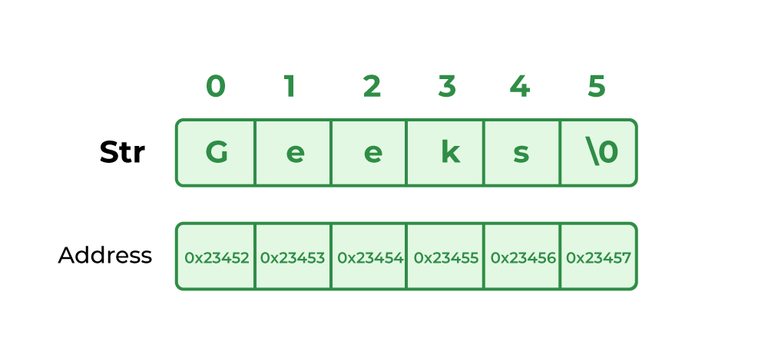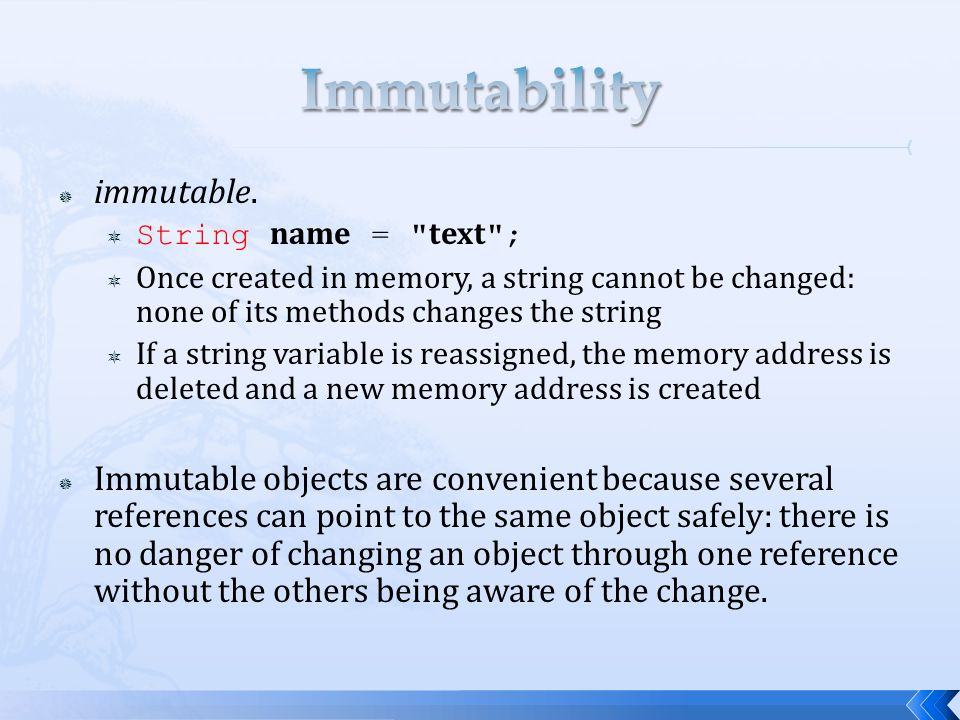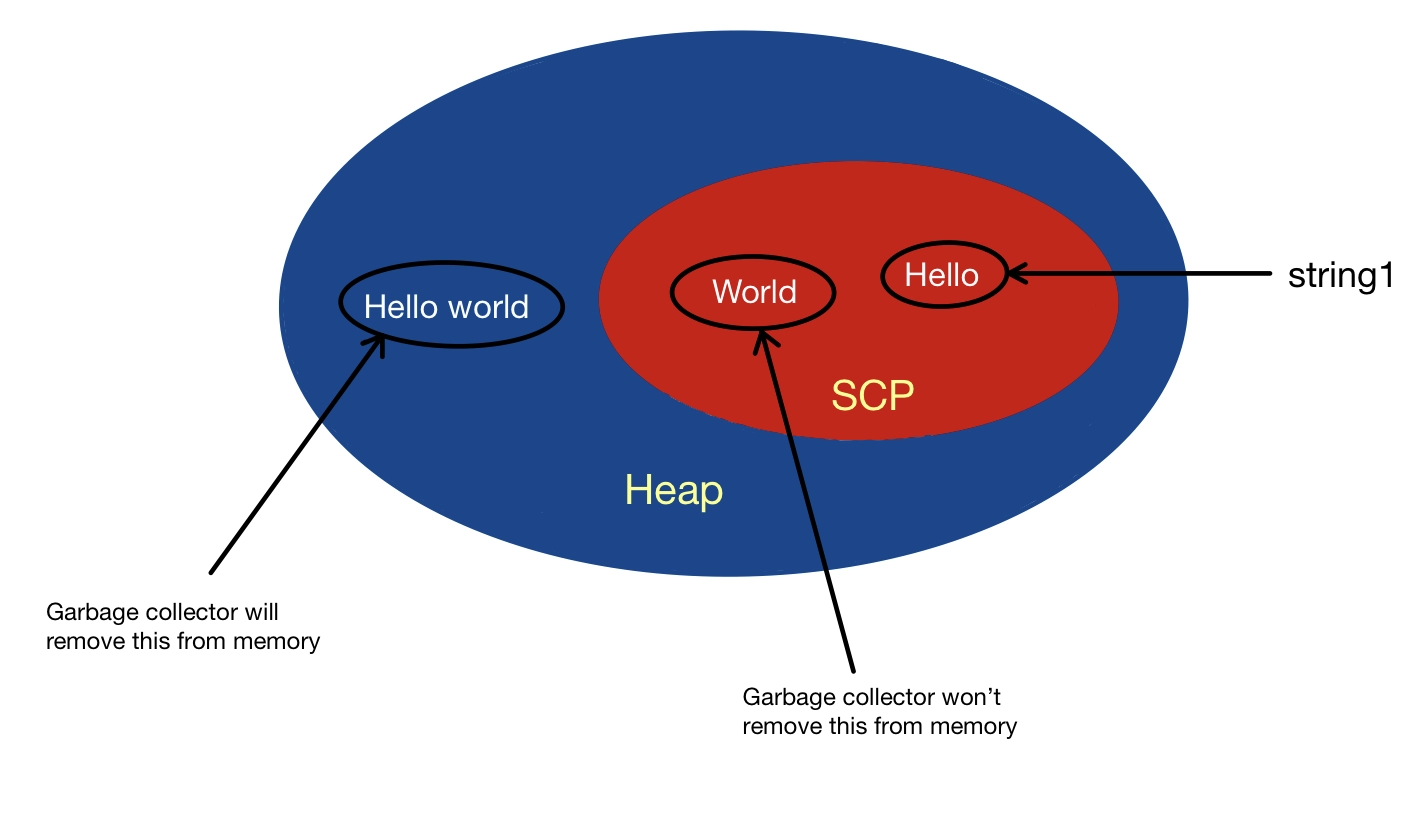Why Are Strings Immutable in Java? In-depth Evaluation for Designers
Wiki Article
Checking Out the Advantages of Immutable Strings in Modern Programming Paradigms
In the realm of modern-day shows standards, the concept of unalterable strings stands as a keystone of robust software program advancement. The advantages they use surpass mere convenience; they fundamentally modify the means information is handled within applications. By taking on immutable strings, programmers can ensure enhanced data stability, boosted string safety, simplified debugging procedures, boosted safety and security measures, and reliable performance optimization. These benefits function as a testimony to the extensive effect that welcoming immutability can carry the dependability and performance of software systems.Enhanced Data Integrity

By protecting against the adjustment of string objects, immutability removes the threat of unintended adjustments to the information they hold. This not only boosts the security of the details yet additionally boosts the integrity of the code that counts on these strings.
Immutability likewise sustains more secure multithreading environments, as concurrent accessibility to immutable strings does not present the threat of information corruption through simultaneous adjustments. This building simplifies the procedure of managing strings in identical programs scenarios.
Essentially, immutability acts as a safety guard around the information saved within strings, enhancing their integrity by ensuring that once specified, their values stay unchanged throughout the program's implementation.

Enhanced String Safety
Unalterable strings improve the string security of programs by guaranteeing that once a string item is developed, its worth can not be customized. This residential property eliminates the risk of simultaneous strings trying to change the very same string concurrently, which might lead to information corruption or inconsistent states in the program - Why are strings immutable in Java?. In a multi-threaded atmosphere, where numerous strings accessibility and control data simultaneously, the immutability of strings offers a degree of safety and security by assuring that the data continues to be unchanged throughout its lifecycleStreamlined Debugging Procedures
Given the boosted thread safety and security helped with by unalterable strings, a considerable advantage develops in the world of simplified debugging procedures. Unalterable strings, when created, can not be altered, making it less complicated to map the flow of information and identify the resource of pests in a program. This immutability makes certain that strings continue to be regular throughout the implementation of the program, decreasing the likelihood of unanticipated changes that could cause errors.When debugging with mutable strings, developers frequently come across concerns where a string's value is modified accidentally, making it challenging to pinpoint the source of a bug. Nevertheless, with unalterable strings, the information continues to be unmodified, enabling developers to concentrate on analyzing the actual logic of the code instead of finding where and when a string was changed improperly.
Furthermore, unalterable strings simplify the debugging process by allowing easier reproduction of bugs. Since unalterable strings do not alter state, programmers can recreate and study bugs much more efficiently, resulting in this link quicker identification and resolution of issues within the codebase. This structured debugging operations inevitably adds to greater software application top quality and boosted total development efficiency.

Increased Security Measures
Enhancing data defense and fortifying system honesty, the usage of unalterable strings in software application applications contributes dramatically to boosted safety and security measures. Immutable strings additionally play a vital function in avoiding typical security susceptabilities such as barrier overflows and SQL shot assaults, as efforts to control string information at runtime are inherently limited.Moreover, the immutability of strings boosts the predictability of program actions, making it easier to confirm inputs and avoid unexpected adjustments that could endanger protection. This predictability simplifies the procedure of auditing and confirming code, enabling developers to identify prospective security loopholes a lot more efficiently. In general, including immutable strings into software application development practices not only boosts the toughness and dependability of applications yet additionally reinforces their resilience against security risks.
Reliable Performance Optimization
Structure upon the structure of increased security procedures accomplished via the application of unalterable strings, a vital aspect to think about in software application advancement is efficient efficiency optimization. When dealing with mutable strings, operations like concatenation or substring development typically lead to the production of new string objects, resulting in memory expenses and increased processing time. Nevertheless, with immutable strings, these operations can be maximized to improve efficiency. By permitting strings to continue to be constant and unchangeable, unalterable strings help with far better memory administration and caching opportunities, inevitably enhancing the total performance of the software.
Unalterable strings likewise play an important duty in multithreaded atmospheres by promoting thread safety and security. Why are strings immutable in Java?. Because unalterable strings can not be customized as soon as produced, they can be shared throughout threads without the danger of unexpected changes, lowering the requirement for synchronization mechanisms and enhancing concurrency. In addition, immutable strings streamline debugging procedures as designers can trust that a string's worth will certainly stay regular throughout the program's implementation, getting rid of potential mistakes brought on by mutable state modifications. Finally, making use of unalterable strings not only boosts safety yet additionally dramatically adds to the reliable efficiency optimization of modern software program systems.
Final Thought
In conclusion, the advantages of utilizing immutable strings in modern programming standards can not be overstated. Boosted information honesty, improved thread security, simplified debugging procedures, raised protection steps, and effective efficiency optimization all add to the general efficiency of programming jobs. By including immutable strings right into shows techniques, programmers can benefit from a much more robust and trustworthy codebase.Immutability, a key feature of strings in shows languages such as Java and Python, guarantees that once a string things is developed, it my latest blog post can not be changed or customized.Unalterable strings improve the thread safety of programs by making go to this site sure that when a string object is developed, its value can not be modified. Unalterable strings additionally play a vital duty in protecting against typical protection susceptabilities such as buffer overflows and SQL injection attacks, as attempts to manipulate string information at runtime are inherently limited.
By permitting strings to continue to be unchangeable and constant, immutable strings assist in much better memory management and caching opportunities, eventually enhancing the total efficiency of the software application.
Immutable strings simplify debugging processes as programmers can rely on that a string's value will certainly remain constant throughout the program's implementation, getting rid of possible mistakes caused by mutable state adjustments.
Report this wiki page